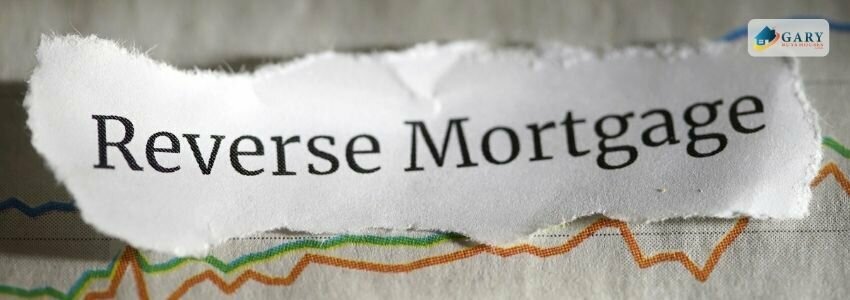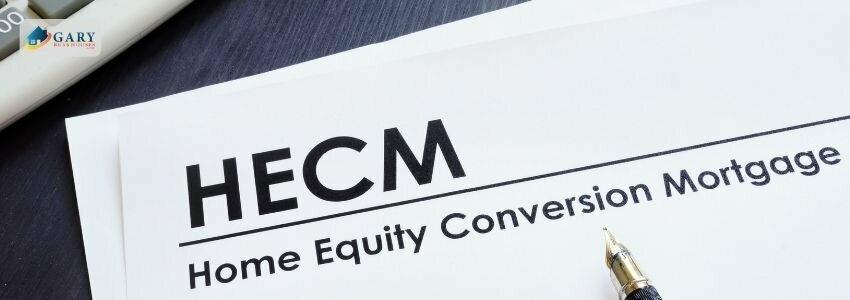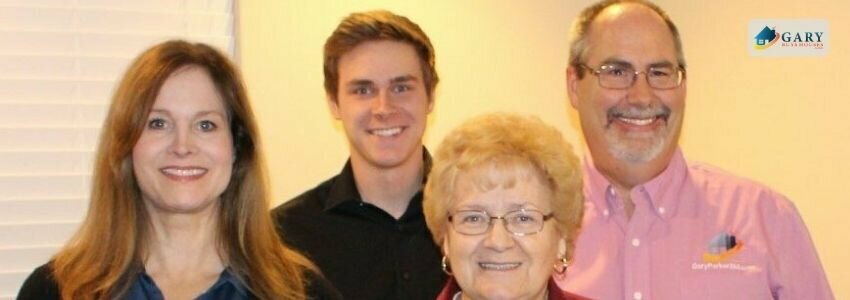If you are preparing to head into your retirement years then you might be considering using a reverse mortgage to help fund your retirement. While there are plenty of advertisements that would boast all the advantages of a reverse mortgage, know that there are some drawbacks of a reverse mortgage as well. Read on to see all the pros and cons of a reverse mortgage to decide if it’s the right choice for you.
Reverse Mortgage Explained

A reverse mortgage loan allows a homeowner who either owns their home outright or has it mostly paid off to borrow money from the bank using their home as security for the loan. These types of loans are often used as an income supplement for retired persons or to help pay for healthcare bills. This type of loan means the homeowner owes more money to the lender over time unlike a traditional loan that would be paid down over time. As your monthly loan amount increases your home equity decreases.
How Does a Reverse Mortgage Work?
A reverse mortgage starts out similar to a regular mortgage, meaning you need to apply and get approved by a lender. The lender determines how much they can lend you and you can then access that loan as cash for living expenses without any monthly loan payments or interest payments until you sell your home. If you die before selling your home then your children who inherit the home either need to pay off the reverse mortgage and all the interest outright or through the sale of the house, or surrender the house to the bank.
Reverse Mortgage Requirements
To qualify for a reverse mortgage you must:
- Be at least 62 years old
- Live in the home as your primary residence
- Own the home outright or have it significantly paid down
- Have zero federal debts
- Be able to show that you have the cash flow necessary to continue paying property taxes, HOA fees, insurance, maintenance and other home expenses.
Types of Reverse Mortgages

1. The Federal Housing Administration’s HECM Reverse Mortgage
This is the most common type of reverse mortgage. HECM, which stands for Home Equity Conversion Mortgage was created in the 80’s to help older Americans access their home equity without needing to move out.
2. Proprietary Reverse Mortgage
This type of reverse mortgage isn’t federally regulated, it is offered up by privately owned and operated companies. These types of loans can offer higher loan amounts but they come with the catch of higher interest rates.
3. Single-Purpose Reverse Mortgage
This reverse mortgage is offered by government agencies at both the state and local level as well as by nonprofit groups. There are rules and restrictions on how the money can be used in this type of reverse mortgage, usually requiring the single-purpose reverse mortgage only be used to make property tax payments or for home repairs. These loans are not federally insured either and the lender has to approve how the money will be used before the loan is given.
Pros of a Reverse Mortgage

- If you don’t have enough money to get by during your retirement years then a reverse mortgage could help.
- You have options in how you receive the money. You can choose to get the money as a lump sum, a line of credit to tap into, a steady stream of monthly advances or a combination of those options.
- Another benefit of a reverse mortgage is that you can live in your home until you die or sell the property and retain your name on the title.
- No monthly payments are required as long as you are living in the home and maintaining your other property taxes and insurance.
- Generally loan proceeds are not considered taxable income but always consult with a tax professional first.
- A reverse mortgage will not likely affect any Social Security or Medicare benefits you would receive but consult with a financial professional to be sure in your situation.
- In a reverse mortgage neither you or your heirs are personally liable for any amount of the mortgage that exceeds the value of your home when the loan is repaid.
- One of the major advantages of a reverse mortgage is that after the loan is repaid any remaining home equity belongs to you or your heirs.
How Much Does it Cost to Get a Reverse Mortgage
- One downside of a reverse mortgage is that you are borrowing against money you spent years paying down. That loan balance will increase over time as interest and fees accumulate.
- You have fewer assets to leave your heirs. You can still leave your home to your heirs but they will have to repay the loan balance which will hopefully be covered by the sale of the home.
- Another drawback of a reverse mortgage is that the fees and interest in a reverse mortgage can be higher than a traditional mortgage.
- The mortgage loan is due in full when the surviving borrower passes away, the home is no longer the borrowers main residence or when the borrower leaves the property for more than 12 months for a medical reason or for more than 6 months for a non-medical reason. If you are unable to pay property tax, insurance, HOA fees or maintain the property the loan can also become due.
- The fees on a reverse mortgage add up really quick. Often these fees can be rolled into the loan amount but that means you are now paying interest on the loan plus the fees. Fees can include an origination fee, mortgage insurance, closing costs and servicing fees — taking thousands of dollars from your home equity just in extra costs.
Can a Reverse Mortgage be Foreclosed
The foreclosure process for reverse mortgages generally follows the same steps as traditional foreclosures. However, there are some key differences.
- Notice of Default: The lender will issue a notice of default if the borrower violates any of the loan terms, providing a timeframe to rectify the issue.
- Foreclosure Proceedings: If the borrower fails to cure the default, the lender may initiate foreclosure proceedings. This involves filing a lawsuit and seeking court approval to sell the property.
- Sale of the Property: Once the court grants permission, the property is sold at auction, and the proceeds are used to repay the loan balance. Any remaining funds are typically distributed to the heirs.
An Alternative to a Reverse Mortgage

For many seniors the desire to stay in their home can be great, but after reading through the pros and cons of a reverse mortgage you might decide that the cons weigh more heavily.
Selling your home can actually give you more freedom in the long run. Without the increasing interest payments and fees you’ll probably make more from selling your home than taking out a reverse mortgage. After selling you can use the money to purchase a smaller home or move in with relatives. While the home will no longer be yours you won’t be getting back a fraction of your equity after the taxes, fees and maintenance, you’ll get the money back you need to provide for your retirement.
If you’re looking to sell your home and would like to save time, money and stress then you can consider selling to a reputable Utah house buying company like us at Gary Buys Houses. Gary is ready to make a fast and fair cash offer for your Utah home and is willing to take on properties in any condition. If you are interested in selling your house to Gary then reach out today and have a closing date in as little as 7 days.
Gary does not sell your contract, require inspections or extensive negotiations. He specializes in hassle-free closings and cash offers. If there is no mortgage on the property then Gary could even close in as little as 1 to 2 days.
Working with Gary means getting a check that you can cash right away the day that you meet up about the property. He is serious and motivated to purchase your home and if for any reason Gary doesn’t buy the house, even if it’s your fault, you get to keep the earnest money. Contact Gary about purchasing your property and get the equity you need in your retirement years right now, without any strings attached.
